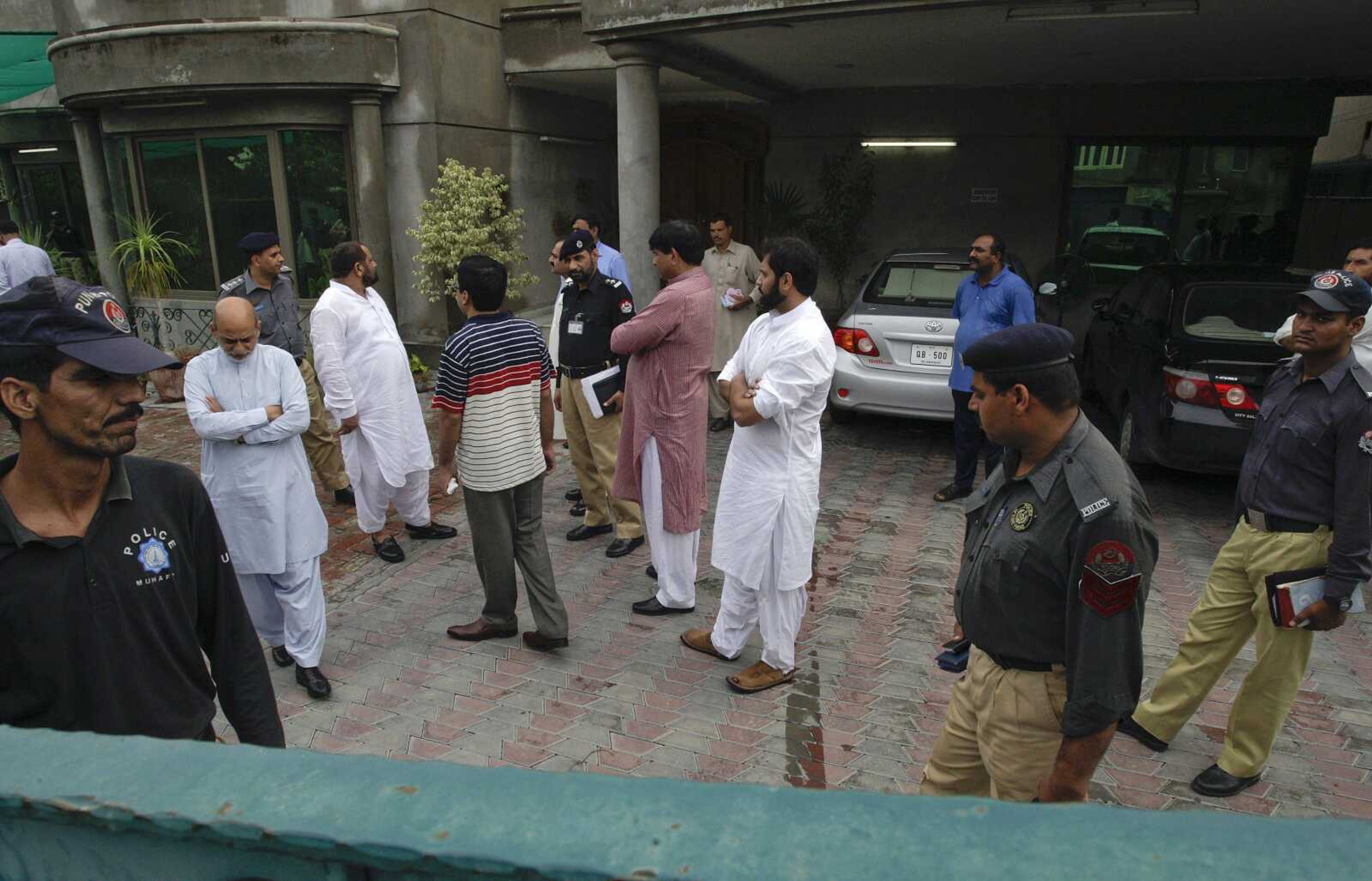Gunmen abduct U.S. man in Pakistani raid
LAHORE, Pakistan -- Gunmen kidnapped an American development expert after tricking his guards and breaking into his house in Pakistan on Saturday, a brazen raid that alarmed aid workers, diplomats and other foreigners who already tread carefully in this country rife with Islamic militancy and anti-U.S. sentiment...
LAHORE, Pakistan -- Gunmen kidnapped an American development expert after tricking his guards and breaking into his house in Pakistan on Saturday, a brazen raid that alarmed aid workers, diplomats and other foreigners who already tread carefully in this country rife with Islamic militancy and anti-U.S. sentiment.
The U.S. Embassy identified the victim as Warren Weinstein. Weinstein is the Pakistan country director for J.E. Austin Associates, a development contractor that has received millions of dollars from the aid arm of the U.S. government, according to a profile on LinkedIn, a networking website.
Police declined to speculate on the motive, and no group immediately claimed responsibility. But kidnappings for ransom are common in Pakistan, with foreigners being occasional targets. Criminal gangs are suspected in most abductions, but Islamic militants, are believed to also use the tactic to raise money.
Lahore has seen a number of militant attacks, and the Punjab region where it is located is home to several of Pakistan's top militant networks, some of which are suspected of ties to Pakistani intelligence.
Police said the American, believed to be in his 60s, had returned to his home in the eastern city of Lahore the previous night from the capital, Islamabad. He had told his staff that would be wrapping up his latest project and moving out of Pakistan by Monday, police officer Tajammal Hussain said.
According to Pakistani police, two of the kidnappers showed up at Weinstein's house Saturday and told the guards inside the gate of the walled compound that they wanted to give them food, an act of sharing common during the Muslim holy month of Ramadan, which started early this month.
The guards opened the gate, and five other men suddenly appeared. The armed assailants overpowered the guards and stormed into the house. Some gunmen are believed to have entered through the back. They snatched the American from his bedroom but took nothing else.
Officials react
Security forces were checking vehicles in and around Lahore in hopes of finding Weinstein, said Ghulam Mahmood Dogar, a top police official.
In Washington, the State Department said it was in touch with Weinstein's family and that U.S. officials in Pakistan were working with local authorities on the case. Spokeswoman Joanne Moore would not comment further, citing privacy concerns.
Weinstein headed a program trying to strengthen the competitiveness of Pakistani industries, according to the biographical section of his company's website, which was taken down late Saturday. The LinkedIn profile says Weinstein has been in Pakistan for seven years.
Calls to the company headquarters in Virginia were not immediately answered, but its website describes Weinstein as a development expert with 25 years experience and a Ph.D. in international law and economics.
"He's a short, funny man with a quick wit," said Raza Rumi, a Pakistani columnist who said the American could speak a fair amount of Urdu.
"He's a very laid-back guy, not too worried about security issues, not really paranoid at all."
The audacious nature of Saturday's abduction raised the likelihood that diplomatic missions, aid groups and contracting companies would further tighten security. Already, many groups severely restrict where their international staff can travel because of kidnapping fears.
The security concerns heavily impact U.S. aid programs and have served to slow down the disbursement of billions of dollars in promised funds because they limit where American diplomats are allowed to go and what projects can be undertaken safely.
Americans in Pakistan are considered especially at risk because militants oppose Islamabad's alliance with Washington and the war in Afghanistan. The unilateral U.S. raid that killed al-Qaida chief Osama bin Laden on May 2 in northwest Pakistan only added to tensions between the two countries.
Connect with the Southeast Missourian Newsroom:
For corrections to this story or other insights for the editor, click here. To submit a letter to the editor, click here. To learn about the Southeast Missourian’s AI Policy, click here.









